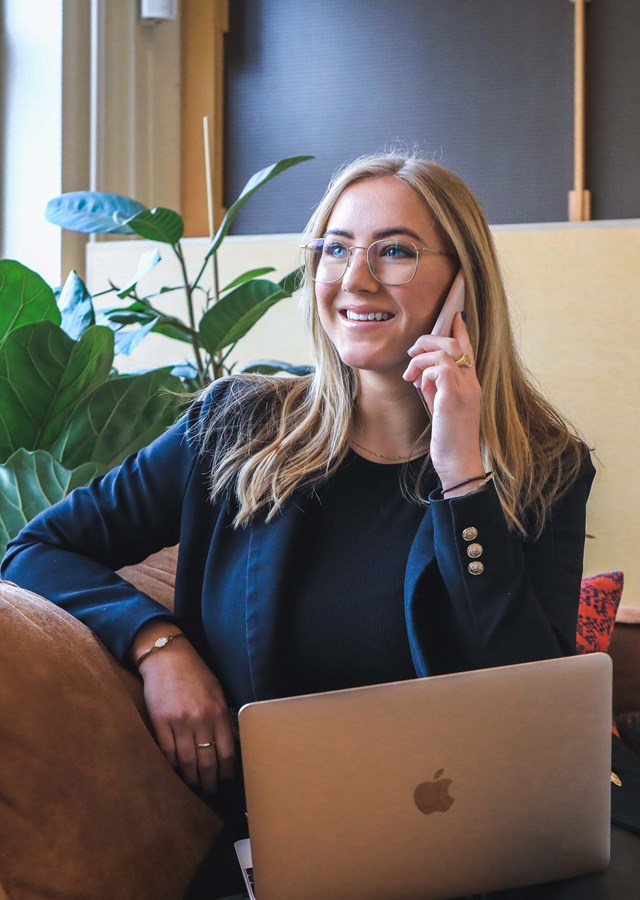You’ve seen a job that you’re interested in and you’ve sent in your CV or application form. Once the person recruiting for this role has seen your application, they may invite you for an interview.
Interviews are usually formal meetings with the hiring manager, to find out more about you and to assess whether you really have the skills and experience you included on your CV or application. They will also be working out if you could be a good fit for the business e.g. would you fit into the existing team.
Don’t forget, an interview will also help you find out if it is a company or place you want to work.
Depending on the role and hiring organisation’s procedures, you may have more than one interview for a role and with more than one person at a time. Interviews can take place by phone, video call or face-to-face.
The interview process: step by step
While every employer is different, most interviews follow a similar structure:
- Phone or video screening – often used to narrow down applicants
- First stage interview – usually focuses on your background, motivations and soft skills
- Second stage interview – may go deeper into technical knowledge or include tasks
- Final stage or offer – sometimes includes salary discussions, references or assessments
Tip: Always read the invitation carefully - it will tell you what kind of interview it is, what to prepare, and who you’ll be speaking with.
Do your research
Find out what you can about the company. Check out their website to find out more about the business (most websites will have an About us section). Also, read about the products and services they offer and who their customers are. You can also do some research to find out who their main competitors are, what products or services they deliver and highlight any differences/similarities between the two organisations.
You may also know someone who works there, ask them about their experience of working for the company.
Review the job description
Re-read the job description. Think about how your skills and experience fit the role and match what the company is looking for. Write down some examples ready for your interview. You might not have every skill they are looking for but make sure you have their key ones covered.
Don’t forget about your transferable skills.
Common interview formats
Each format has its own style. Here's how to prepare for the most common types:
Phone interviews
- Find a quiet space with a good signal
- Keep your CV and the job description in front of you
- Speak clearly and smile - it comes across in your voice
Video interviews
- Test your tech ahead of time (camera, microphone, internet)
- Dress professionally (top to toe-just in case!)
- Make eye contact by looking at the camera, not the screen
- Have a plain, tidy background and good lighting
In-person interviews
- Plan your journey and arrive 10–15 minutes early
- Bring a copy of your CV, a notepad, and a pen
- Be polite to everyone you meet - first impressions count
Panel interviews
- Make eye contact with each person on the panel
- Ask for names again if you forget - it's okay!
- Address your answers to the person who asked, but include others too
Assessments and tasks
- You may be asked to do a skills test or group exercise
- Take your time to read instructions carefully
- Show your working and thought process where possible
What questions should you ask?
The interview goes both ways-asking questions shows interest and helps you decide if the job is right for you. You can ask questions about the role, the team or about what it’s like to work for that company.
Try to ask 2-3 thoughtful questions, such as:
- What does a typical day in this role look like?
- How would you describe the team culture?
- What opportunities are there for learning and development?
- What are the next steps in the process?
View our guide to Typical interview questions.
What employers look for
Regardless of format, most employers are assessing a few key things:
- Do you understand the role?
- Can you do the job (or learn quickly)?
- Do you have the right attitude?
- Will you fit into the team or company culture?
They’re not expecting perfection - just preparation, curiosity, and authenticity.
Common interview mistakes to avoid
- Speaking negatively about past employers or colleagues
- Not researching the company beforehand
- Talking too much - or not enough
- Asking about salary or holidays too early
- Not preparing questions to ask at the end
Managing nerves and building confidence
Everyone gets nervous before interviews! Remember, you were offered an interview, so the company is already interested in your skills and experience - this is your chance to show them off!
These tips can help:
- Take slow, deep breaths before you begin.
- Remind yourself of your successes and why you’re a good fit.
- Practise with a friend or record yourself to build confidence.
- If you blank on a question, it’s okay to pause and say, “That’s a great question - let me think for a moment.”
Try these tips to cope with nerves.
After the interview
Do:
- Reflect on what went well and what you’d do differently
- Send a short thank-you email to the interviewer
- Stay positive - every interview is a learning opportunity
Don’t:
- Panic if you don’t hear back immediately
- Assume rejection means failure - sometimes it’s just not the right fit
Interview FAQs
How long does an interview usually last?
Anywhere from 20 minutes to an hour, depending on the role and format.
Can I bring notes?
Yes! Especially for phone or video interviews. Just don’t read from them.
What should I wear?
Dress one step smarter than the company’s day-to-day dress code. If unsure, smart casual is a safe bet.
If money is a bit tight, you can hire a full interview outfit for free from H&M or Suited for Success, helping you to boost your confidence and make a great first impression.
Should I ask questions at the end?
Always. Try asking things like:
- “What does success look like in this role?”
- “What are the next steps in the process?”
- “What do you enjoy about working here?”














